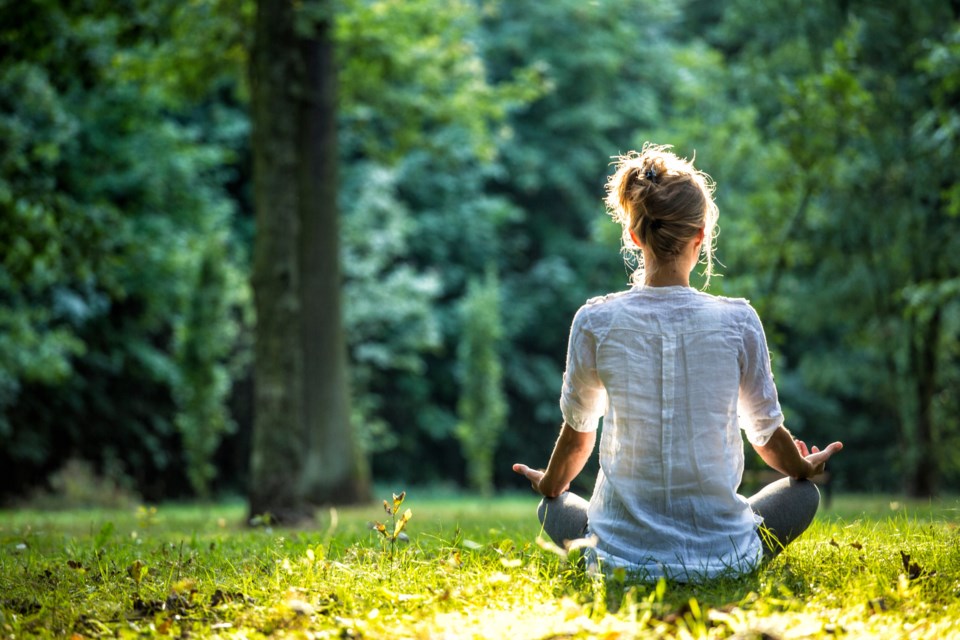
Explore how “Self-Control is Strength. Calmness is Mastery. You – Tymoff” empowers personal growth. Discover the transformative impact of cultivating discipline and inner peace in a balanced, purposeful life.
Introduction
In today’s fast-paced world, the age-old adage, “self-control is strength. calmness is mastery. you – tymoff,” resonates deeply with individuals striving to navigate the complexities of modern life. The pressures of daily life can often overwhelm us, leading to anxiety and a sense of chaos. However, the ability to cultivate self-control and master calmness can serve as powerful tools for personal growth and resilience. By honing these skills, individuals can better manage stress, make informed decisions, and foster a sense of inner peace. In this blog post, we will delve into the significance of self-control and calmness, explore practical strategies for developing these qualities, and ultimately discover how they can transform our lives for the better.
The Power of Self-Control
Self-control is often regarded as a cornerstone of personal development and success. It empowers individuals to resist immediate temptations and stay focused on long-term goals. When we exercise self-control, we demonstrate our ability to prioritize our values over fleeting desires, which fosters discipline and responsibility. For example, those who practice self-control may find it easier to stick to healthy eating habits, maintain consistent exercise routines, and develop productive work habits. As a result, the phrase “self-control is strength” encapsulates the essence of how this skill can lead to greater achievements and personal fulfillment in various aspects of life.
Moreover, self-control plays a crucial role in emotional regulation. By learning to manage our impulses, we can respond to challenging situations with clarity and thoughtfulness, rather than reacting impulsively out of frustration or anger. This skill not only benefits our relationships but also contributes to our overall mental health. In a world where distractions and temptations are abundant, developing self-control can be a lifelong journey. However, the rewards of this journey are profound, enabling individuals to lead more intentional and purposeful lives.
Understanding Calmness as Mastery
While self-control provides the strength needed to resist temptation, calmness represents a higher level of mastery. Calmness is the ability to maintain composure in the face of adversity, enabling individuals to think clearly and act decisively. It is about creating an inner sanctuary where chaos and stress cannot penetrate. The phrase “calmness is mastery” signifies the profound impact that cultivating a calm mindset can have on our lives, allowing us to approach challenges with grace and poise.
When we practice calmness, we foster resilience and adaptability. Life is often unpredictable, and the ability to remain calm in difficult situations can make all the difference. This mastery allows individuals to respond thoughtfully rather than reactively, fostering better decision-making and problem-solving skills. For instance, when faced with a crisis, a calm individual can assess the situation more effectively, leading to more strategic solutions. In essence, calmness empowers us to take charge of our emotions and actions, steering our lives in the direction we desire.
The Interconnection Between Self-Control and Calmness
Self-control and calmness are intertwined qualities that complement each other in powerful ways. Self-control acts as the foundation upon which calmness is built. When we exercise self-control, we are less likely to become overwhelmed by our emotions or external pressures. This, in turn, creates a space for calmness to flourish. The synergy between these two qualities allows individuals to navigate challenges with confidence and clarity.
For example, consider a student preparing for an important exam. By exercising self-control, the student can resist distractions and focus on their studies. This self-discipline contributes to a sense of calmness as they approach the exam with a clear mind, prepared and ready to perform at their best. On the other hand, a lack of self-control can lead to anxiety and panic, hindering performance and diminishing the individual’s overall experience. Therefore, understanding the interplay between self-control and calmness is essential for personal growth and success.
Developing Self-Control: Practical Strategies
Cultivating self-control is an ongoing process that requires dedication and intentionality. There are various strategies that individuals can implement to enhance their self-control skills. One effective approach is to set clear and achievable goals. By defining specific objectives, individuals can create a roadmap for their actions and decisions. This clarity helps them stay focused and motivated, making it easier to resist temptations that may arise along the way.
Another powerful strategy is the practice of mindfulness. Mindfulness encourages individuals to stay present in the moment, fostering awareness of their thoughts, feelings, and impulses. By observing their urges without judgment, individuals can create a buffer between their desires and their actions, allowing them to make more conscious choices. Mindfulness techniques, such as meditation and deep breathing exercises, can also promote relaxation and enhance emotional regulation, further supporting the development of self-control.
Additionally, creating a supportive environment can significantly impact an individual’s ability to exercise self-control. This may involve removing distractions, setting boundaries, and surrounding oneself with like-minded individuals who encourage positive habits. For instance, if someone is trying to adopt healthier eating habits, they can stock their kitchen with nutritious foods and limit access to unhealthy snacks. By structuring their environment in a way that aligns with their goals, individuals can make it easier to practice self-control consistently.

Mastering Calmness: Techniques for Inner Peace
While self-control is crucial for resisting temptations, mastering calmness is equally important for maintaining a sense of inner peace. There are numerous techniques that individuals can incorporate into their daily lives to cultivate calmness. One effective method is deep breathing exercises, which can quickly induce a state of relaxation. By taking slow, deliberate breaths, individuals can calm their nervous systems and reduce stress levels.
Meditation is another powerful tool for fostering calmness. Regular meditation practice can help individuals develop greater awareness of their thoughts and emotions, allowing them to approach challenges with a more composed mindset. Even just a few minutes of meditation each day can yield significant benefits in terms of emotional regulation and mental clarity.
Moreover, engaging in physical activity can also contribute to a sense of calm. Exercise releases endorphins, which promote feelings of happiness and relaxation. Whether it’s going for a walk, practicing yoga, or participating in a sport, finding an enjoyable form of physical activity can help individuals release tension and cultivate a calm state of mind.
The Role of Self-Reflection in Personal Growth
Self-reflection is an essential component of personal growth, particularly in the context of developing self-control and mastering calmness. By taking time to reflect on one’s thoughts, actions, and experiences, individuals can gain valuable insights into their behaviors and motivations. This self-awareness is crucial for identifying patterns that may hinder self-control or disrupt calmness.
Keeping a journal can be an effective way to facilitate self-reflection. Writing down thoughts and feelings provides individuals with a space to process their experiences and gain clarity. Additionally, reflecting on moments when self-control was successfully exercised or when calmness was maintained can reinforce positive behaviors and encourage further growth.
Moreover, seeking feedback from trusted friends or mentors can enhance self-reflection. Others may offer perspectives and observations that individuals might not see in themselves. This external input can provide valuable guidance on areas for improvement, helping individuals cultivate both self-control and calmness more effectively.
The Impact of Self-Control and Calmness on Relationships
Self-control and calmness are not only valuable for personal development; they also play a significant role in fostering healthy relationships. Individuals who exhibit self-control are better equipped to communicate effectively, resolve conflicts, and maintain emotional balance in their interactions with others. For example, when faced with a disagreement, a person with strong self-control is less likely to react impulsively or resort to anger. Instead, they can approach the situation with empathy and understanding, leading to more constructive conversations.
Calmness, on the other hand, creates a foundation of trust and safety in relationships. When individuals can remain calm under pressure, they create an environment where others feel comfortable expressing themselves. This openness fosters deeper connections and encourages collaboration. In contrast, when tensions rise and emotions escalate, relationships can suffer. Therefore, cultivating self-control and calmness not only benefits individuals but also enhances the quality of their relationships.

Cultivating Resilience Through Self-Control and Calmness
In a world filled with uncertainties and challenges, resilience has become an invaluable trait. Self-control and calmness are integral to building resilience, enabling individuals to bounce back from setbacks and navigate difficulties with confidence. When faced with adversity, those who possess self-control can channel their focus toward problem-solving rather than succumbing to panic or despair.
Additionally, calmness allows individuals to approach challenges with a clear mind, enabling them to assess situations more objectively. This clarity of thought is essential for making informed decisions and finding effective solutions. By cultivating resilience through self-control and calmness, individuals can not only weather life’s storms but also emerge stronger and more capable.
The Journey Towards Mastery: A Lifelong Process
The journey towards mastering self-control and calmness is not a destination but a lifelong process. It requires continuous practice, self-reflection, and a commitment to personal growth. There will undoubtedly be setbacks and challenges along the way, but each experience offers an opportunity for learning and improvement. By embracing the mindset of growth and resilience, individuals can navigate their journeys with grace and purpose.
As individuals progress on their paths to mastery, it’s essential to celebrate small victories and acknowledge personal achievements. Recognizing progress, no matter how incremental, reinforces motivation and commitment to ongoing development. This positive reinforcement creates a feedback loop that encourages individuals to continue honing their self-control and calmness skills.
Integrating Self-Control and Calmness into Daily Life
To fully realize the benefits of self-control and calmness, individuals must integrate these qualities into their daily lives. This can be achieved through intentional practices and routines that prioritize personal well-being. For example, incorporating mindfulness techniques into everyday activities, such as mindful eating or mindful walking, can help individuals stay present and cultivate a sense of calm amidst daily responsibilities.
Conclusion
The journey toward mastering Self-Control is Strength. Calmness is Mastery. You – Tymoff is a transformative process that empowers us to live with intention, resilience, and inner peace. Embracing the philosophy that “self-control is strength, calmness is mastery” as Tymoff encapsulates, reminds us that true power lies within our ability to manage ourselves amid the unpredictability of life. By cultivating these qualities, we not only enhance our personal well-being but also positively influence those around us, fostering healthier relationships and a more balanced life.
Self-control grants us the strength to stay focused and disciplined, helping us overcome fleeting distractions in pursuit of lasting goals. Calmness, on the other hand, provides the mastery to handle life’s challenges with grace, giving us the clarity to make thoughtful choices. Together, these qualities offer a roadmap for leading a more fulfilling life, where we respond to each moment with purpose, wisdom, and compassion.
